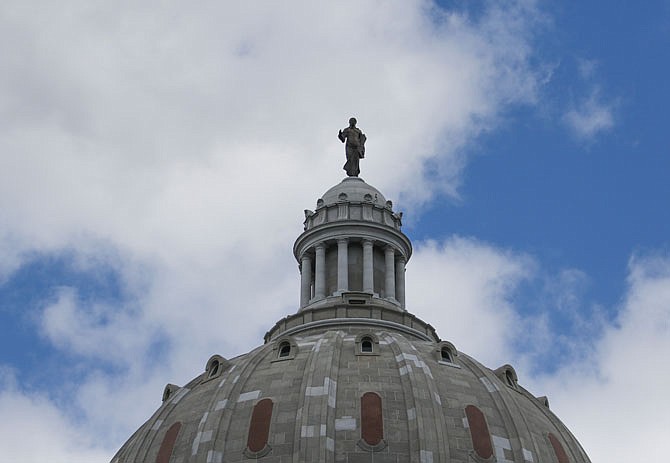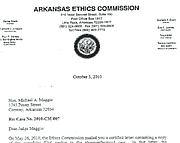This article is free to all readers because it includes information important to public safety and health in our community.
A bill heeding Gov. Mike Parson's call for an expansion of special legislative session to include legal liability protections related to the COVID-19 pandemic was filed Friday in the state Senate.
The Legislature is in a special legislative session originally called to pass a supplemental budget with $1.2 billion in spending almost entirely related to pandemic response. The House passed the appropriations bill with the spending authority Tuesday and sent the bill on to the Senate, though the Senate took no immediate action on it Friday and adjourned until Tuesday morning.
Parson on Thursday called for special session to be expanded to include several different kinds of liability protections for health care providers, manufacturers and other businesses, and other organizations related to their responses in a declared state of emergency, such as the one currently in place for the pandemic.
"None of these groups should be penalized for their efforts to respond to a declared state of emergency," he said. "They must be able to continue operating and serving the public without risk of unnecessary and senseless claims."
Parson and other lawmakers had previously called for or signaled their support for such action, and the governor Thursday asked for: liability protection for health care providers; product liability protection for designers, manufacturers, distributors and retailers; and premises liability protection for exposure claims.
Senate Majority Floor Leader Caleb Rowden, R-Columbia, introduced a bill Friday on those topics filed by Sen. Ed Emery, R-Lamar.
The summary describes any health care provider who is deployed by the governor or another state agency during an emergency is not liable for civil damages or administrative sanctions for "any failure to exercise the skill and learning of an ordinarily careful health care provider in similar circumstances in the delivery of such health care."
The bill would add "nondelivery of such health care" under that umbrella of protection and would also hold providers liable for "when a person has sustained a serious injury (one that results in treatment, inpatient hospitalization, permanent disability or death) as a result of malicious misconduct or conduct that intentionally caused damage to the plaintiff, instead of willful and wanton acts or omissions."
That language might cover situations where hospitals are overwhelmed with COVID-19 patients and may have to triage care, deciding who's treated and who's not, for example.
Evidence of negligence would not constitute malicious or intentional conduct, even if the evidence included "an indifference to or a conscious disregard for the safety of others."
Product liability protection would extend to people who make the product at issue outside the ordinary course of their business; do make the product in their ordinary course of business, but the emergency required manufacturing modifications outside the course of ordinary business; or do make the product in the ordinary course of business, but the emergency caused the product to be used differently than its recommended purpose.
Many businesses have at least in part switched from making their usual products to more needed ones this year, such as brewers turning to making hand sanitizer. The state also has a website where businesses can register to sell medical supplies to health care providers or raw materials to manufacturers of personal protective equipment and has offered federal aid to encourage manufacturers to retool their production lines to produce PPE including respirators, gloves, face shields and masks.
"Additionally, any person who selects or dispenses a product in response to an emergency shall not be liable in any civil action claimed to have arisen from the selection, dispensation, or use of the product," the bill states.
Plaintiffs making related product liability claims would also have to provide "clear and convincing evidence" a person intentionally harmed them or had knowledge of a product being defective, the defect would likely cause injury and acted with "a deliberate and flagrant disregard for the safety of others."
The premises liability protection proposed by the bill would shield property owners from exposure claims related to an emergency and sustained on the property, unless someone can prove by "clear and convincing evidence" that an owner intentionally harmed them or acted with deliberate and flagrant disregard for others' safety.
Some public places have already had posted "assumption of risk" notices related to coronavirus infection.
The Missouri State Fair had one this year that visitors to the fair's website had to acknowledge before proceeding.
The Missouri River Regional Library in Jefferson City also notes - while mostly closed at the moment anyway - that by visiting, "you voluntarily assume all risks related to exposure to COVID-19."
Under Emery's bill, owners who use their property in a way other than its normal use to assist in emergency response would not be liable for exposure claims and would not be liable for claims related to "conduct intended to reduce an exposure claim" if the owner operated with substantial compliance or reasonable consistency with timely public health regulations, orders, ordinances or guidance.
Emery is term-limited, and former House member Rick Brattin was elected to take his seat in the coming regular session.


